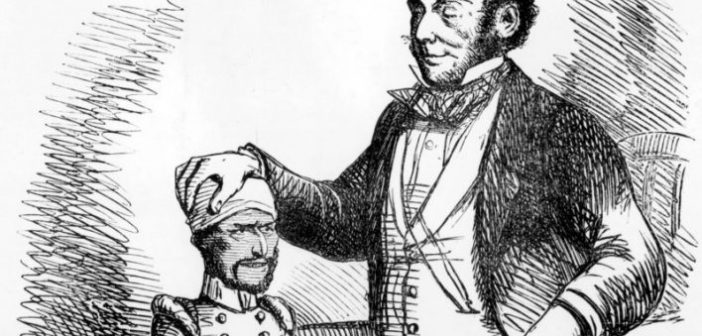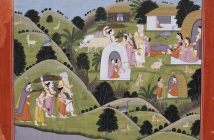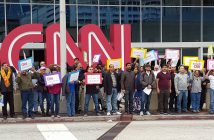“I refuse to call my city Mumbai. To me, it will always be BOMBAY” uttered the innocent, well-meaning Indian Coconut. Now in case you’re wondering and don’t know what a Talking Indian Coconut is. Let me explain it to you. The definition of the ‘Talking Indian Coconut’ is:
A person aspiring and trying very hard to be white-minded but he/she/it is trapped in a brown body and whose masked inferiority complex will not allow them to acknowledge the fact, if pointed out to them.
 Before I go ahead with my analysis, let me make some things very clear. Once upon a time during those days of my mental colonization, I was a talking human coconut myself! (I feel I still have a long way to go. ‘Decoconutisation’ is a constant process). I had a certain way of looking at my surroundings. I used to have a distinctively Anglicized/Western/Euro-Centric lens. My worldview was shaped by certain norms (which now I call myths) where I would derive certain conclusions based on certain views which I thought were universal. The epistemological categories that I used to apply in the past when it came to defining something as basic as my disbelief in certain religious claims of Hinduism were also based on Euro-Centric epistemological categories.
Before I go ahead with my analysis, let me make some things very clear. Once upon a time during those days of my mental colonization, I was a talking human coconut myself! (I feel I still have a long way to go. ‘Decoconutisation’ is a constant process). I had a certain way of looking at my surroundings. I used to have a distinctively Anglicized/Western/Euro-Centric lens. My worldview was shaped by certain norms (which now I call myths) where I would derive certain conclusions based on certain views which I thought were universal. The epistemological categories that I used to apply in the past when it came to defining something as basic as my disbelief in certain religious claims of Hinduism were also based on Euro-Centric epistemological categories.
Now back to the main moot point. So this is what a friend/fellow human being/coconut #1 used as a retort when I pointed out to him in a completely non-violent way about the usage of the word Bombay. “I think this approach to citing historic occurrence to justify the present action is the reason why India is still plagued with caste, regional and religious divide. Who cares what was called what. For me, it’s Bombay for you Mumbai and for someone else Bumbai.”
Look at the line of thinking or in my view the complete lack of it. Just because we refuse to call a city BOMBAY or we call it MUMBAI, we become “a society plagued with caste, regional and religious divide”. What a ridiculous argument! According to the Indian Coconut, the Ethnic Indian Identity is the source of all the conflict in India.
The person then follows it up with the standard ‘who cares what was called what’ jibe. Well, you certainly do care what it is called because you directly associated the calling of a city Mumbai to a whole plethora of social problems. As if when the same city was called BOMBAY these problems did not exist. As if when Mumbai was Bombay, everything was hunky dory. As if we were all living together holding our hands together singing soulful songs.
It is why and how a city gets called something that matters the most. It is the methodology and the thinking behind the name that matters. That is why what we call ourselves matters a lot. How we define ourselves as a society should matter to each and every Indian.
Now onto to Coconut #2. This one says, “Bombay represents culture, a strong sense of inherited enterprise, the pivot of the freedom movement, liberal-mindedness, women’s security, business approach and an ability to deliver come what may let’s not be monocultural now. ”
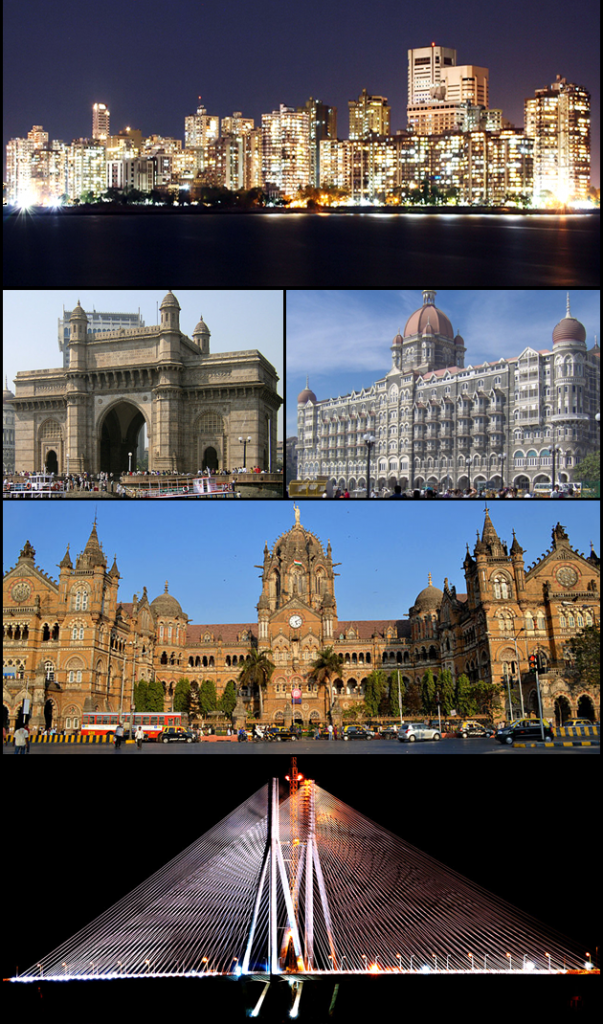
So does only calling the city BOMBAY represent all those things that the coconut #2 mentioned???? How could a lowly Marathified Mumbai represent lofty values like culture, a strong sense of inherited enterprise, the pivot of the freedom movement, liberal-mindedness, women’s security, business approach and an ability to deliver come what may? How dare I the lowlife desi associate these values with Indian-ness. It is only reserved for the left-liberals.
After all, Coconut #1 had mentioned all of India’s problems are because of its Indian identity. And what can one say about the allegation of hey dudeeeeeee let’s not be monocultural now? Obviously, Indians are not allowed to have their grand narrative. So what if the entire West has its grand narrative? So what if Britain just had Brexit which was based largely on cultural issues? They can have that privilege, but how dare these low life third world coolies even think of having such privileges? Don’t they know their place?
And this is where the crux of the problem with the Indian Coconut lies.
The Indian coconut associates modernization with westernization. For the Indian Coconut, the Indian ethnic identity is something that needs to be eliminated. This is coupled with the Indian fair-skin complex that associates progress with the color white. Otherwise, which country on planet earth would sell a fairness cream?! (The whites are already fair, blacks have no expectations, while the browns are seriously hopeful!) In the words of Rajiv Malhotra, I think it is time someone wrote a book on ‘How the Desis are becoming White’.
And whiteness is not just the color of your skin. Whiteness is not just a racial connotation. Whiteness represents a set of values and world views. Once you start following those set of values is when you enter the cozy club of whiteness.
It is like a power structure. And many Indians in the West and India have molded themselves into a certain way to enter this club. These are the social climbers.
Therefore the Indian Coconut suffers from Stockholm Syndrome*. They sound like that battered wife who says, ‘so what he beat me, man; he gave me amazing food to eat with yummy desserts. And do you know, desserts had great toppings too.’ (I would like to clarify here that I have nothing personal against the current crop of Britishers or the Western world at large. I don’t hold any grudge against them for the behavior of their ancestors towards my people. My wife is a westerner too!)
Karl Marx wrote in 1853,
England has to fulfill a double mission in India; one destructive, the other regenerating – the annihilation of the Asiatic society, and the laying of the material foundations of Western Society in Asia.
So after looking at the Indian Coconut could we safely assume that England was successful?
There are even more important questions that need to be answered. Could there be a universal model of ‘modernity’ without slipping into moral and cultural relativism? A homogeneous concept of modernity defined for all races? The origins of ‘Modernity of the West’ stem from a critical analysis of their society that had inherently Judeo-Christian values. Can a model of Judeo-Christian values be copy-pasted onto a Dharmic Indian society?
At a metaphysical level, a Dharmic society is very different from a Judeo-Christian society. In such a scenario don’t we need to redefine the categories of what constitutes to be modern or liberal? Can we classify a Dharmic society into categories such as ‘modern’, ‘liberal’ and ‘conservative’? Are classifications such as ‘right wing’ & ‘left wing’ or ‘atheist’ & ‘theist’ meaningful in a Dharmic society? Another classic example is applying Freudian psychoanalytical tools on a Dharmic society. Are our intellectuals so lazy to create categories that fit into our socio-cultural understanding?
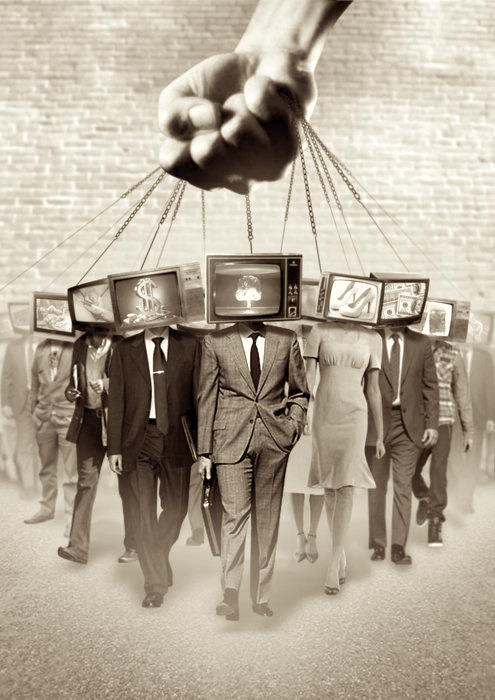
We need not go back to the old Vedic times. What we need is to have more intellectual rigor and try to find our narrative. Intellectual lethargy makes a society stagnant. I find it deeply disturbing when I see Indian youth being mentally conditioned in a way where they are convinced that Western values are universal, and they are the be all and end all of this world.
The concern is not whether Western values are good or bad. The concern is that we are lazy that we won’t even critically analyze something before we map it onto our socio-cultural ethos. One’s own identity must be properly established and the psychological coconut must break.
* Stockholm syndrome or capture-bonding, is a psychological phenomenon described in 1973 in which hostages express empathy and sympathy and have positive feelings toward their captors, sometimes to the point of defending and identifying with the captors.

